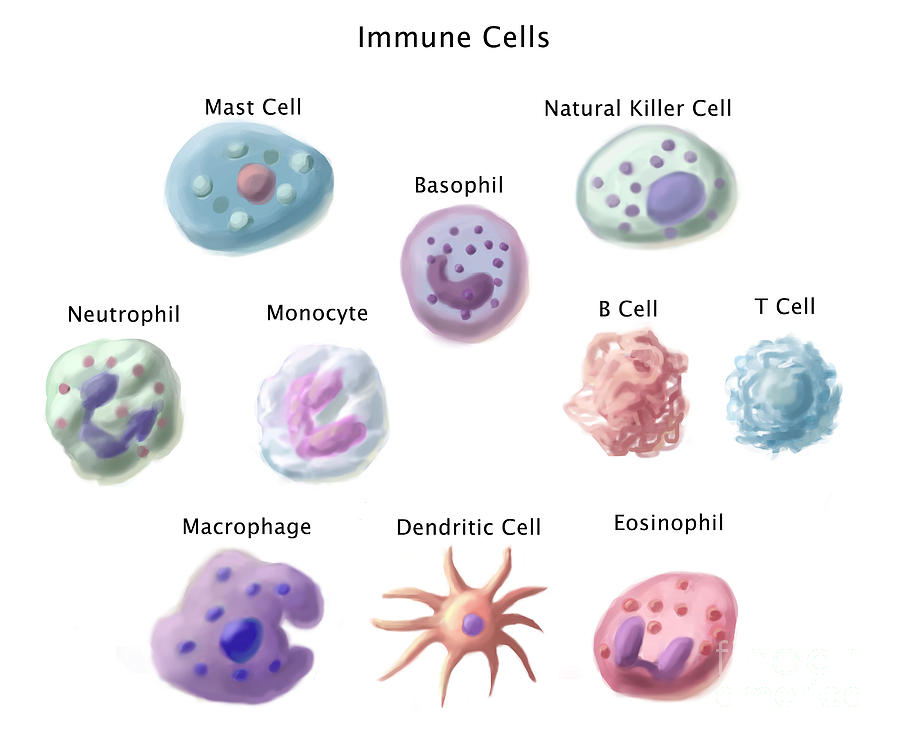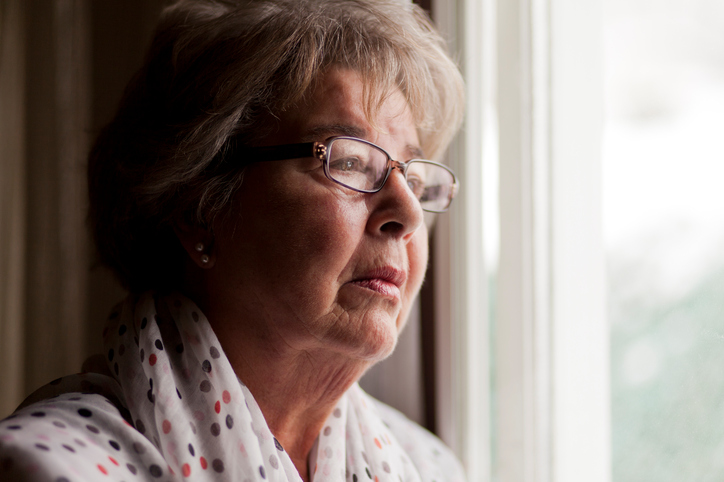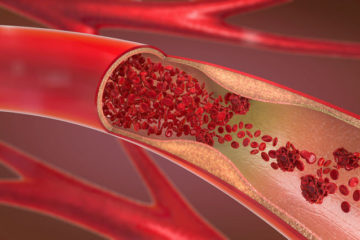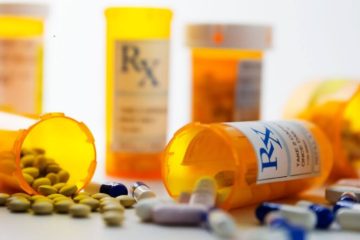Kate Spade’s tragic death in 2018 highlighted, again, the issue of the treatment of depression. A well-known person with apparently everything to live for and so much to give, committed suicide, hanging herself with a scarf. Her family said she was depressed and on anti-depressants. Read on to find out why anti-depressants are not the answer to depression. They are not targeting the root cause – that depression is actually an inflammatory disease.
What depression medications do
Antidepressants’ actions are all based on the premise that people with depression have a brain chemical imbalance. Therefore they need drugs to rebalance their brain chemicals in order to give relief from depression. This is the Monoamine hypothesis of depression. This hypothesis is used to justify the drugs most widely used today for major depressive disorder.

These five main drug types used for depression are:
- SSRI’s (Selective serotonin reuptake inhibitors). These prevent the neurotransmitter serotonin from leaving the brain so fast for excretion of recycling, giving it more time to act. Includes Zoloft, Prozac and Paxil.
- SNRI’s (Serotonin noradrenaline reuptake inhibitors). Same mechanism, but include the neurotransmitter, noradrenaline. These include Pristiq, Effexor and Cymbalta.
- MAO inhibitors (Monoamine-oxidase inhibitors). These inhibit the enzymes in nerve cells that break down noradrenaline, serotonin and dopamine, leaving more available for brain cells. Includes Aurorix, Tranylcypromine and Parnate.
- Tricyclic anti-depressants block serotonin and noradrenalin breakdown at the synapse of the nerve cells. This is the same action but in a different part the cell. Examples are Tofranil and Tryptanol.
- Atypicals appear to block noradrenaline and serotonin from leaving the nerve cells BEFORE the cell synapses. These include Bupropion and Venlafaxine.
You would think there would be plenty of evidence for the existence of such a chemical imbalance to use such means to correct it.
In fact, there is none.
New York psychiatrist, Dr Kelly Brogan, says “not a shred of evidence” exists that any brain chemical imbalance exists. The monoamine hypothesis of depression fails dismally to explain all aspects of the disease.
These powerful drugs are actually altering concentrations of brain chemicals; chemicals that were never out of whack in the first place!
How does the body respond to this sort of abuse? It exhibits side effects.
Side effects
The side effects of these drugs include –
- impaired concentration
- weight gain
- dry mouth
- seizures
- confusion
- nausea
- tachycardia (racing heart)
- dizziness
- rash
- headache
- insomnia
- sedation
- agitation
- restlessness and
- INCREASED feelings of depression leading to – SUICIDE or homicide.
In fact, mass shootings in the USA are being more and more frequently linked to medication with various anti-psychotic and anti-depressive drugs <see here>. A large number of the shooters are either on the drugs or have recently taken themselves off them.
Withdrawing from these drugs causes such swings in brain chemicals that the symptoms of withdrawal are frightening. In fact, they are worse than the treatments in many cases.
People withdrawing from these drugs do things they normally wouldn’t dream of doing.
A further indictment of these drugs is that they may also hinder recovery from depression. Robert Whitaker, a Pulitzer prizewinning medical and science journalist, points out that
“…psychopharmacological drugs work well to curb acute symptoms. However, patients receiving prolonged treatment courses often end up more disabled than they started.”
Robert Whitaker, Anatomy of a Epidemic
When patients take these drugs for a prolonged period, imbalances in brain chemicals occur. This was the very reason the drugs were prescribed in the first place. The drugs actually CAUSE the problem they were supposed to cure.
This imbalance is the key reason getting OFF the drugs causes more pain than the original problem; it is why so few people succeed.
What about compassion & political correctness?
People suffering from depression are suffering. They are suffering from a debilitating condition. Saying that drugs may not be the best way to treat is not to minimise its disabling effects on a person’s life.
However, depression and mental illness treatment and the rising public cost of lost workdays and the disability pensions will not be able to be forever paid for by our governments. While compassion must be given for those suffering, serious alternatives need to be considered and programmes developed that actually work.
What causes depression?
Hundreds of studies, such as <this one>, are now pointing to the idea that depression, like most chronic diseases, is actually caused by inflammation. Depression is another inflammatory disease.
We find this inflammation most commonly in one or more of the following areas:
- the thyroid
- the gut
- blood sugar
This is the new science of <psychoneuroimmunology> – the science of how inflammation impacts behaviour. We now understand exactly which immune cells are activated as part of the inflammatory response, and which directly affect behaviour and mood.

A <2017 study> stated that
Extensive amounts of data now exist that highlight the role
Aleem & Tohid, University of California at San Diego
of inflammation in individuals suffering from depression or
chronic stress …
Lowering inflammation to reduce depression
It is lifestyle factors that cause most of the inflammation that can lead to depression. Not all may be under the control of the person who is depressed – but some will be. The nutritional approach to depression is to alter the factors that can be altered, and as symptoms lessen, often the other inflammatory factors become more controllable.
This is what I have seen in most of my depression and anxiety clients. We work on what we are ABLE to work on whilst being aware of what we cannot work on yet. As their mood disorder improves, they see a path to changing other things in their lives that will alleviate the condition further. And now they have the clearer thinking and motivation to move forward on that path.
I have had several patients who have been on antidepressants for decades, reduce their need for their drugs and, working alongside their doctor, eventually, and safely, get off them all entirely for the first time in their adult lives. By working consistently on a diet, exercise and lifestyle programme, we lower inflammation naturally.
Depression is an inflammatory disease
Janet (name changed for privacy), aged 60, had suffered from major depressive disorder for 31 years when she came to see me. Prior to that, she had suffered from social anxiety. Janet had been on a high dose of Pristiq for three decades. (See above how Pristiq works).

Ten years earlier she had tried to reduce her Pristiq dosage and ended up in hospital from a failed suicide attempt. Janet was understandably terrified at reducing the drug again but hated taking it as she no longer felt great happiness – or sadness. In her words, “All was ‘grey'”.
My goal was to lower inflammation in the many areas it showed up in her body. You can read <here> what sort of things are involved in effectively lowering inflammation in the body.
Janet also had fibromyalgia and chronic fatigue, so it was clear to me the source of the inflammation. Over several months we worked on getting inflammation down; we measured our success by her energy levels going up and her fibromyalgia pain going down. Then she discussed tapering off Pristiq with her primary care doctor. He advised on how fast to go off it and cautions. She continued working with him on this. I prescribed some supplements beneficial when reducing psychiatric medications.
In another five months, she had reduced the drug by ⅔ and told me when she woke each morning, the world seemed coloured again, she felt happiness and could cope with sadness better. Janet went on over the next year to get off the drug completely and eventually get off the supplements too. She went off happily with her husband to do overseas charity work – which had previously been out of reach for them both because of her various conditions.
Your options with depression
I would think it was worth giving such interventions a good chance, before embarking on powerful, addictive and dangerous drugs. Or if depression is acute, using the drugs short-term while working hard on reducing inflammation, in order to get off them sooner.
If inflammation is an inflammatory disease, no amount of drugs targeting the monoamine hypothesis of depression will ever bring relief from the condition.
Note: If you are already on anti-depressants or other psychotic drugs, do not discontinue them without the support of your medical practitioner. You will need to be on a comprehensive anti-inflammatory programme first so when you begin tapering (under supervision), your withdrawal symptoms will be less pronounced.



0 Comments